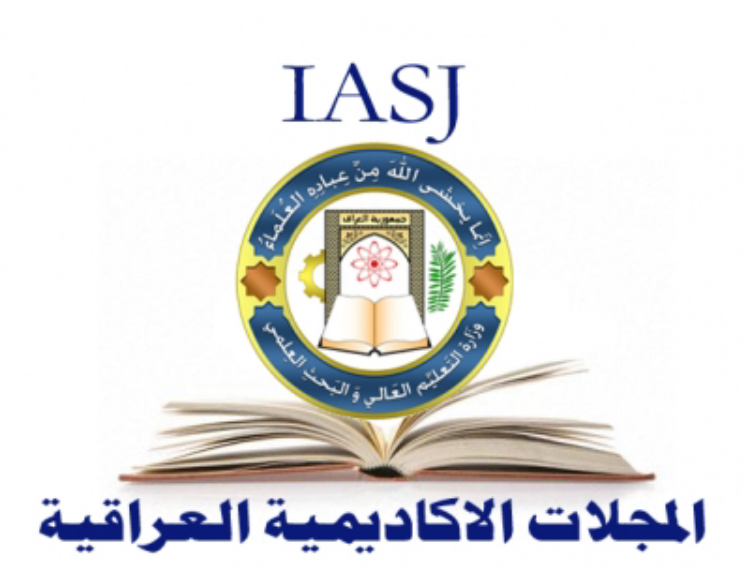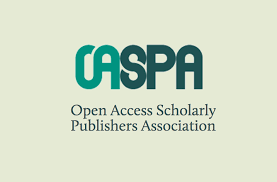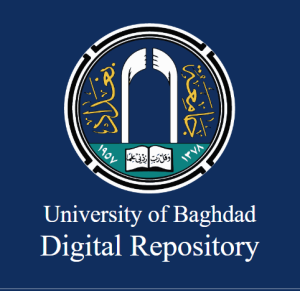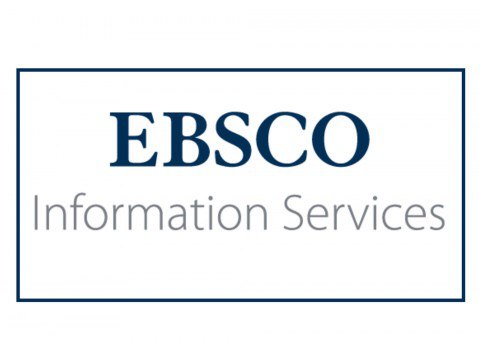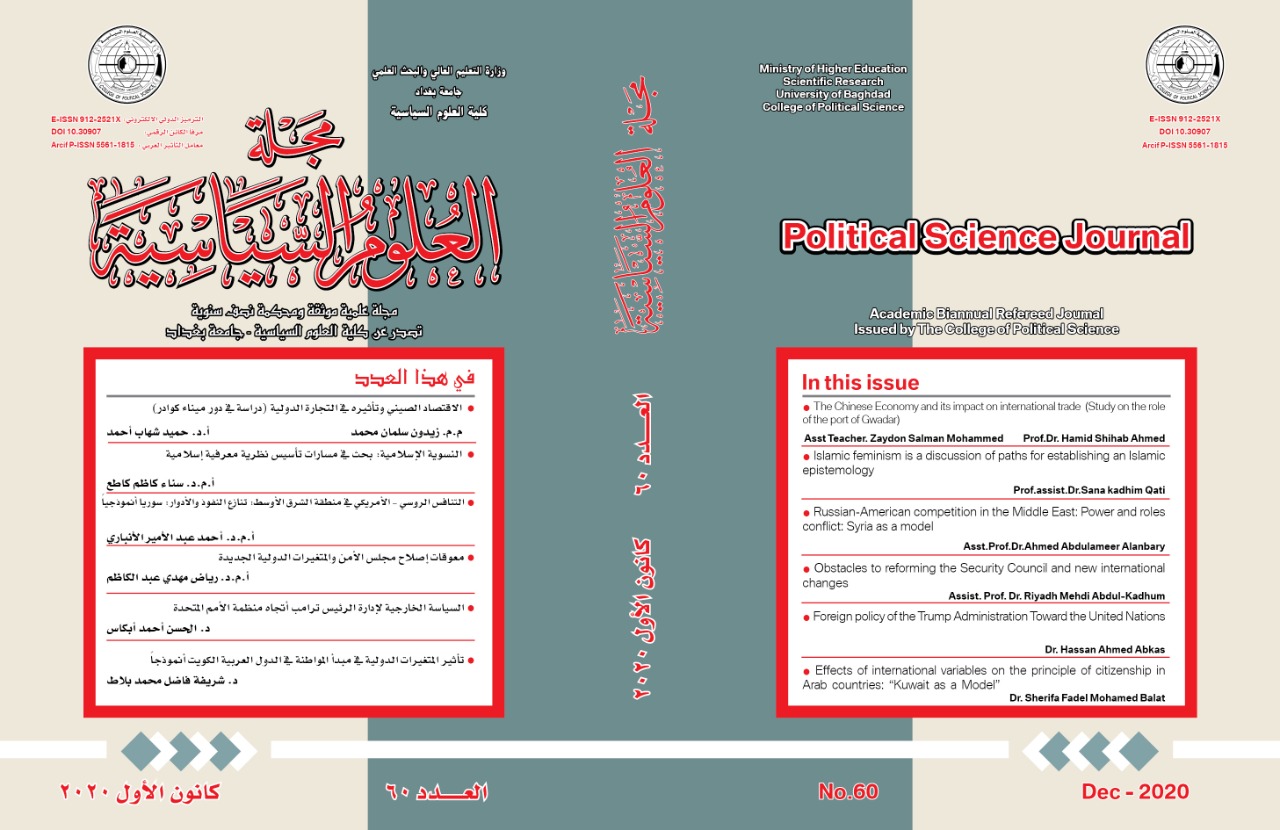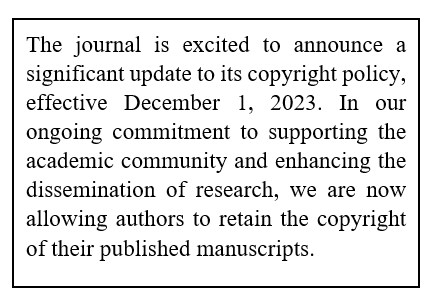
Publication Ethics
The Political Sciences Journal is committed to the Principles of Transparency and Best Practices in Scholarly Publishing and to the COPE Core Practices, in order to ensure academic integrity and transparency at all stages of publication.
Editorial Duties and Responsibilities:
- Publication Decisions
Manuscripts submitted to the journal are assessed to guarantee that all criteria, conditions, and terms of publication are met regardless of gender, race, background, religion, nationality, ethnicity, and political philosophy. The Journal's editorial board is responsible for approving the publication of the submitted research. Academic added value, scientific integrity, sound language, proper citation, and refraining from plagiarism are considered before publication.
The editorial board adheres to improving the journal's scientific and academic sobriety by publishing academic research according to its clarity, importance, originality, and accordance with announced conditions and terms.
The editorial board is also committed to addressing any complaints or appeals in accordance with a clear policy published on the journal’s website, and to issuing corrections, retractions, or expressions of concern when necessary, in line with the Committee on Publication Ethics (COPE) guidelines.
- Confidentiality
The editor-in-chief and editorial board pledge the confidentiality of information related to submitted research and documents except for necessary information authorized by the editors, authors, scholars, and publishers.
- Disclosure and Conflicts–of–Interests
The Editor-in-Chief and all members of the Editorial Board are required to disclose any potential conflicts of interest, whether professional or financial, that may affect editorial impartiality. They must refrain from handling any manuscripts in which such connections could compromise the integrity of their editorial decisions, particularly when these conflicts arise from competitive, collaborative, or other significant relationships with the authors, companies, or institutions involved.
Reviewers' Responsibilities:
- Participation in Editorial Decisions
The peer review process of research assists the editorial board in making an appropriate decision concerning the research and assisting the author in improving his/her research. The editorial board adheres to grant peer reviewers the standards, regulations, and level of originality of the accepted research and documents for publication in the journal. In addition, the editorial board is committed not to disclose the names of the peer reviewers unless written consent is obtained from the concerned peer reviewers.
- Promptness
The selected peer reviewers are committed to notifying the editorial board of their apology for reviewing as soon as possible.
- Confidentiality
Reviewers are required to treat submitted documents and research confidentially. They cannot reveal or debate them with others except the editor-in-chief.
- Criteria of Objectivity
The criteria of objectivity in peer reviewing are fundamental requirements, and personal judgment concerning authors is not permitted and disregarded. The peer review process must be enhanced by scientific arguments and clear points of view; it must follow the journal’s adopted criteria and regulations of “publication requirements.”
-Acknowledgement of Sources:
Reviewers are committed to notifying the editorial board of the author's non-compliance with the requirements of publication. In addition, they are committed to ensuring the appropriateness of the references and the correct referencing (references should be matched in the body text and bibliography). The arguments and views presented in the research should not belong to other research. Reviewers are committed to notifying the editor of any substantial similarity or overlap between research submitted to the journal and any other published research.
- Disclosure and Conflict of Interests
Reviewers are not permitted to use any ideas or information that occurred in the reviewed research for competitive interests, personal purposes, or any other interests. Furthermore, they are required to reveal any conflict of interests that might lead to a biased opinion about the research.
Authors' Duties:
- Reporting Criteria
Researchers are required to comply with the measures and regulations of “publication policy” and the journal’s approved writing style. Criteria of accuracy must be provided through the clarity of the aim, the justification of the research approach, the presentation of results in an accurate and sequential way, the debating of results in a way that accomplishes the aims of the research, and all should be enhanced by recent scientific references. Additionally, it should include results not stated in other research. The inclusion of forged and stolen results is regarded as unacceptable and unethical behavior.
The journal takes any instances of plagiarism, fabrication, or data manipulation seriously. Plagiarism detection tools are used when necessary, and appropriate actions are taken in accordance with the Committee on Publication Ethics (COPE) guidelines. Authors are required to sign a declaration of compliance with these conditions.
- Data and Reproducibility
The Political Sciences Journal is committed to supporting academic transparency and the reproducibility of research. Authors are required to accurately document the data and supporting materials used in their studies, attaching them as appendices or referencing their original sources, in order to allow for review and verification whenever possible. In cases where data sharing is not feasible due to confidentiality, intellectual property rights, or ethical considerations, authors must clearly state this within the manuscript.
-Multiple, Redundant, or Concurrent Publication
Researchers should not submit their work to more than one journal at a time, as it goes against the publication's policy. It is not permitted for researchers to submit the same manuscript to multiple journals, each with its own publication policy. Once a manuscript is submitted, researchers should not publish the same material elsewhere.
- Authorship of the Research
The research must mention the names of all the authors who made significant contributions, such as the idea, writing, design, and implementation. One of the authors must be a coordinator to contact the journal. Finally, the researcher should be granted final approval for the final version of the research submitted for publication (the pledge).
- Disclosure and Conflict–of–Interests
Researchers are required to disclose any financial support or other kind of support provided to them. In addition, researchers must reveal any conflicts of interest or issues that may affect the research interpretations or results.
Each published article must include a clear Conflict of Interest statement. If there is no conflict, the statement should read: “The authors declare that there is no conflict of interest.” The article must also include a Funding Statement indicating the sources of funding, if any.
Ethical Oversight:
The Political Sciences Journal affirms its commitment to the highest standards of ethical oversight in all research submitted for publication. Authors are required to:
- Obtain Consent to publication in studies involving individuals or personal data.
- Protect the privacy of participants and ensure the confidentiality of sensitive data.
- Observe ethical standards for publishing on vulnerable populations or sensitive issues involving human participation in research. This also includes studies that address human rights issues affecting specific groups or communities, or that relate to sustainable development or environmental issues when involving human participation or personal data. Animal welfare must likewise be observed in research involving animals.
- Clearly state the details of ethical approvals in the research (such as approval from ethics committees or research institutions).
- Comply with ethical business and marketing practices in accordance with the standards of reputable academic publishing.
This policy aligns with the Committee on Publication Ethics (COPE) guidelines under Ethical Oversight.
- Fundamental Mistakes in Published Research
The researcher is committed to notifying the editor or the publisher in case of misstatements in the body text of their research. in order to do the needed corrections in typing in the intended forms. In case of finding significant errors or inaccuracy in the published research, the researcher is committed to inform and cooperate with the editor of the journal or the publisher to undo or correct their printed research.
The journal issues corrections, retractions, or expressions of concern when necessary in accordance with the Committee on Publication Ethics (COPE) guidelines. An Expression of Concern is defined as a formal interim notice intended to alert readers to serious concerns regarding the published research, pending the completion of an investigation and the implementation of the appropriate final action.

 ©️ 2023 The Author(s). Published by College of Political Science, University of Baghdad. This is an Open Access article distributed under the terms of the
©️ 2023 The Author(s). Published by College of Political Science, University of Baghdad. This is an Open Access article distributed under the terms of the 
